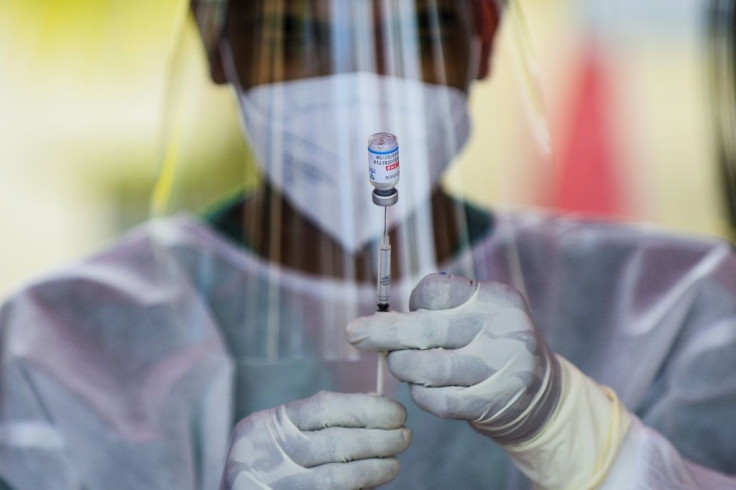New COVID-19 Variant With 'Increased Transmissibility', Antibody Evasion Discovered In Several Countries
KEY POINTS
- The strain contains mutations associated with other variants of concern
- It is yet unclear how efficient current COVID-19 vaccines are against the new strain
- The new strain has been detected in at least seven other countries
South African scientists have detected a new COVID-19 variant that could be more transmissible and more antibody-resistant than other known mutations.
Scientists first identified the C.1.2 strain in May in the Mpumalanga and Gauteng provinces in South Africa. The strain contains mutations found in other COVID-19 variants, such as Alpha, Beta, Delta and Gamma, with “increased transmissibility” and an increased ability to evade neutralizing antibodies in COVID-19 vaccines, scientists said.
“We describe and characterize a newly identified SARS-CoV-2 lineage with several spike mutations that is likely to have emerged in a major metropolitan area in South Africa after the first wave of the epidemic, and then to have spread to multiple locations within two neighboring provinces,” the researchers wrote in a paper published in the journal Nature.
“Although the full import of the mutations is not yet clear, the genomic and epidemiological data suggest that this variant has a selective advantage — from increased transmissibility, immune escape or both."
The South African scientists are yet to determine how the virus behaves. They are now conducting laboratory tests to determine the efficacy of current COVID-19 vaccines against the new strain.
The C.1.2. strain was found in 2% of genomes in South Africa in July. Scientists also found 14 mutations in nearly 50% of variants that had the C.1.2. sequence. As of Monday, the C.1.2 strain has been found in at least seven other countries, including China, the Democratic Republic of the Congo, Mauritius, New Zealand, Portugal, Switzerland and the United Kingdom, the New York Post reported.
The C.1.2. strain has yet to be given a name, which will likely be a letter from the Greek alphabet as other variants have received.
South Africa was also the first country to detect the B.1.351 Beta variant in December. That variant is believed to be more contagious than the original strain of COVID-19. One study also found that vaccines had a sixfold lower ability to neutralize the Beta strain.
“We showed that the faster-spreading variants, particularly the South African one, have become partially resistant to the antibodies produced after a natural infection,” Prof. Olivier Schwartz, Ph.D., head of the Virus and Immunity Unit at the Institut Pasteur, a co-last study author, told Medical News Today.

© Copyright IBTimes 2025. All rights reserved.






















